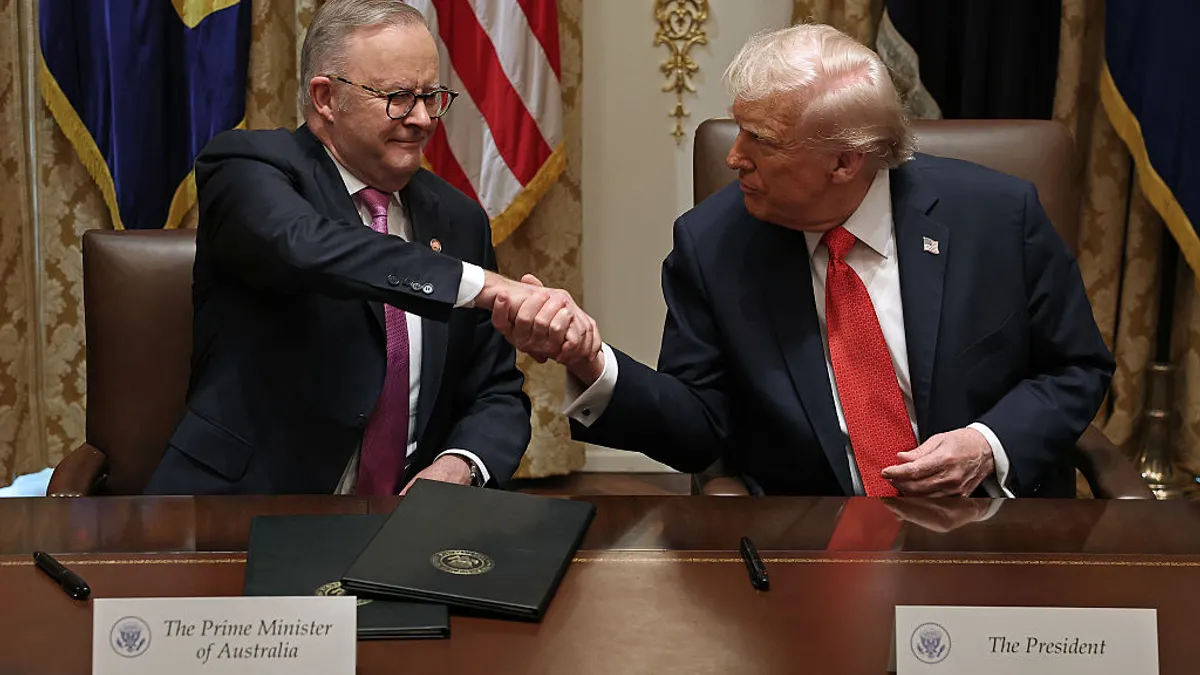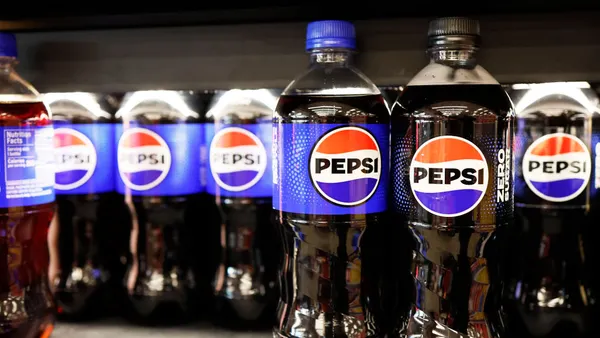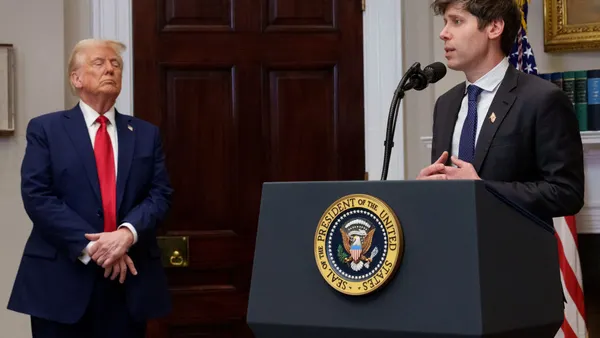The U.S. and Australia launched a multi-billion-dollar initiative to build a supply chain for critical minerals essential to their military and domestic industries.
U.S. President Donald Trump and Australia Prime Minister Anthony Albanese signed on Monday a non-binding framework for collaboration that includes joint public and private investments in the mining and processing of critical minerals. The accord also pledges to streamline or deregulate permitting for mineral extraction and refining, and commits to adopting price floors or similar measures to shield domestic markets from unfair trade policies.
"We've been working on that for quite a while," Trump said of the cooperation agreement in a White House signing ceremony with Albanese. "In about a year from now, we'll have so much critical mineral and rare earths that you won't know what to do with them."
The U.S. and Australia plan to provide at least $1 billion in financing for critical mineral projects in each country within six months, according to the framework document. At the signing, Albanese said part of the deal includes an $8.5 billion pipeline, but did not provide details.
Building an independent critical mineral supply chain has become more urgent for the U.S. as trade rival China tightens export restrictions on goods and technology related to rare earths, a critical mineral classification. China is the world's top producer of essential minerals, according to the U.S. Geological Survey, and a major buyer of Australia's strategic minerals, including 95% of the country's lithium ore spodumene.
China's threat to the U.S. and global markets goes beyond slowing exports. In 2024, the country's overseas mining acquisitions reached the highest level in a decade, critical mineral experts at the Center for Strategic and International Studies said in an analysis of the framework.
"A key obstacle to minerals security is China’s deliberate manipulation of global markets—flooding them with excess supply to push prices so low that mines in countries like the United States and Australia become unviable," the assessment said. "This approach has made it difficult for the United States and its allies to compete with China under current market conditions."
Australia is an "indispensable partner" to the U.S. because it contains over 40 minerals identified as critical by the USGS, the analysis said.
The framework includes the countries mobilizing the government and private sector for capital and operational expenditures through guarantees, loans or equity.
On Monday, the U.S. Export-Import Bank said it had issued Letters of Interest totaling more than $2.2 billion to seven companies engaged in critical or strategic minerals production and processing in Australia. The companies are Arafura Rare Earths, Northern Minerals, Graphinex, Latrobe Magnesium, VHM, RZ Resources and Sunrise Energy Metals.
A Letter of Interest is a non-binding preliminary indication that the Export-Import Bank is willing to consider financing a proposed export transaction.
The outline for cooperation between the U.S. and Australia also commits the parties to developing new or existing authorities and diplomatic tools for reviewing and deterring critical mineral and rare earth sales on national security grounds.
Other provisions include a joint security response group to address supply chain risks and identify priority minerals, and a pledge to invest in mineral recycling technologies.














